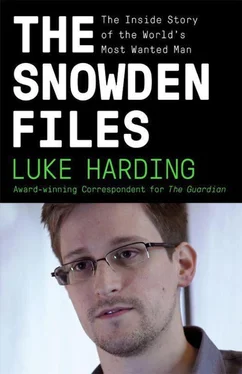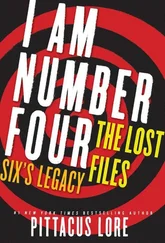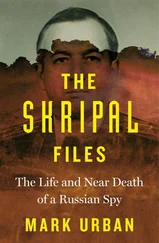Fans view him as a radical hero in the revolutionary tradition of Thomas Paine. Enemies regard him as an irritant, an ‘activist’, even a traitor. Two of his books cover the foreign policy and executive abuses of the Bush era. A third, With Liberty and Justice for Some (2011), examines the double standards in America’s criminal justice system. Greenwald argues persuasively that there is one rule for the powerless and another for those in high office who break the law, and invariably get away with it. The book delves into a theme important to both Greenwald and Snowden: the illegal wiretapping scandal in the Bush White House, and the fact that nobody was ever punished for it.
In August 2012, Greenwald left Salon.com and joined the Guardian as a freelance columnist. It was a nice fit. The paper’s editor, Alan Rusbridger, sees the Guardian as inhabiting an editorial space distinct from most American newspapers – with less reverence for the notions of professional demarcation and detachment that, rightly or wrongly, shape much US journalism. More than most media outlets, the Guardian has embraced new digital technologies that have radically disrupted the old order.
Rusbridger observes: ‘We have, I think, been more receptive to the argument that newspapers can give a better account of the world by bringing together the multiple voices – by no means all of them conventional journalists – who now publish on many different platforms and in a great variety of styles. That’s how Greenwald ended up on the Guardian .’
Greenwald thus personifies a debate over what it means to be a journalist in the 21st century, in a new and noisy world of digital self-publishing, teeming with bloggers, citizen reporters and Twitter. Some have called this digital ecosystem outside mainstream publishing ‘the Fifth Estate’, in contrast to the establishment Fourth. Hollywood even used the name for a movie about WikiLeaks.
However, Rusbridger adds: ‘Greenwald does not much like being described as a member of the Fifth Estate – largely because there’s a persistent attempt by people in politics and the law as well as journalism to limit protections (for example, over sources or secrets) to people they regard (but struggle to define) as bona fide journalists. But he recognisably does have a foot in both camps, old and new.’
For sure, Greenwald believes in a partisan approach to journalism – but one, he says, that is grounded in facts, evidence and verifiable data. Typically he uses detail to smite his opponents, prising corrections from temples of US fact-checking, such as the Washington Post and the New York Times .
In an illuminating conversation with Bill Keller, a former editor of the New York Times , Greenwald acknowledges that ‘establishment media venues’ have done some ‘superb reporting’ in recent decades. But he argues that the default model in US journalism – that the reporter sets aside his subjective opinions in the interests of a higher truth – has led to some ‘atrocious journalism’ and toxic habits. These include too much deference to the US government of the day, and falsely equating a view that is true with one that isn’t, in the interests of ‘balance’.
The idea that journalists can have no opinions is ‘mythical’, Greenwald says. He reserves special contempt for one particular class: journalists who in his view act as White House stooges. He calls them sleazeballs. He asserts that instead of taking the powerful to task, the DC press corps frequently perform the role of courtier.
Keller, meanwhile, along with other thoughtful editors, have their own critique of ‘advocacy journalism’. Keller says: ‘The thing is, once you have publicly declared your “subjective assumptions and political values”, it’s human nature to want to defend them, and it becomes tempting to minimise facts, or frame the argument, in ways that support your declared viewpoint.’
In the months to come, Greenwald’s own brand of advocacy journalism was going to be subjected to more public scrutiny than he could ever have imagined.
In December 2012, one of Greenwald’s readers pinged him an email. The email didn’t stand out; he gets dozens of similar ones every day. The sender didn’t identify himself. He (or it could have been a she) wrote: ‘I have some stuff you might be interested in.’
‘He was very vague,’ Greenwald recalls.
This mystery correspondent had an unusual request: he asked Greenwald to install PGP encryption software on to his laptop. Once up and running, it allows two parties to carry out an encrypted online chat. If used correctly, PGP guarantees privacy (the initials stand for ‘Pretty Good Privacy’); it prevents a man-in-the-middle attack by a third party. The source didn’t explain why this curious measure was needed.
Greenwald had no objections – he had been meaning for some time to set up a tool widely employed by investigative journalists, by WikiLeaks and by others suspicious of government snooping. But there were two problems. ‘I’m basically technically illiterate,’ he admits. Greenwald also had a lingering sense that the kind of person who insisted on encryption might turn out to be slightly crazy.
A few days later, his correspondent emailed again.
He asked: ‘Have you done it?’
Greenwald replied that he hadn’t. The journalist asked for more time. Several more days passed.
Another email arrived. It persisted: ‘Have you done it?’
Frustrated, Greenwald’s unknown correspondent now tried a different strategy. He made a private YouTube tutorial showing step by step how to download the correct encryption software – a ‘how to’ guide for dummies. This video had little in common with the Khan Academy: its author remained anonymous, an off-screen presence. It merely contained a set of instructions. ‘I saw a computer screen and graphics. I didn’t see any hands. He was very cautious,’ Greenwald says.
The freelance journalist watched. But – stretched by other demands – didn’t quite get round to following its strictures. He forgot about it. ‘I wanted to do it. I work a lot with hacker types,’ Greenwald says. But ultimately: ‘He didn’t do enough to get himself up my priority list.’
Five months later, during their encounter in Hong Kong, Greenwald realised his would-be source back in late 2012 had been none other than Edward Snowden. Snowden was among Greenwald’s community of readers. Liking Greenwald’s world view, his brio and his uncompromising approach to government, Snowden had reached out to him, but unsuccessfully. ‘Snowden told me: “I can’t believe you didn’t do it. It was like: ‘Hey, idiot!’ ”’
Snowden in Hawaii was thousands of miles away from Brazil. There was little prospect of a physical meeting. Online contact was essential. Yet Greenwald had been too distracted even to follow Snowden’s simple encryption guide. The whistleblower’s frustration must have been considerable. Greenwald says: ‘He must have been thinking: “I’m just about to take this enormous fucking risk, to throw my life away, get killed, do the biggest security leak ever, and he [Greenwald] can’t even be bothered to get an encryption code.”’
As a consequence of this PGP debacle, several weeks passed uselessly. Snowden seemed to have no safe route through to Greenwald. The columnist carried on unaware, penning polemics in his remote mountain home. Marauding jungle monkeys would often invade, picking fights with the dogs, sometimes pelting them with branches, or retreating into dense thickets of bamboo. At other times Greenwald rolled around with his animals; he says this is a welcome distraction from politics and the remorseless stream of Twitter.
At the end of January 2013, Snowden tried a different way to get to him. He sent an email to Laura Poitras. He was hoping to open an anonymous channel to the documentary film-maker, who was Greenwald’s friend and a close collaborator. Poitras was another leading critic of the US security state – and one of its more prominent victims.
Читать дальше












